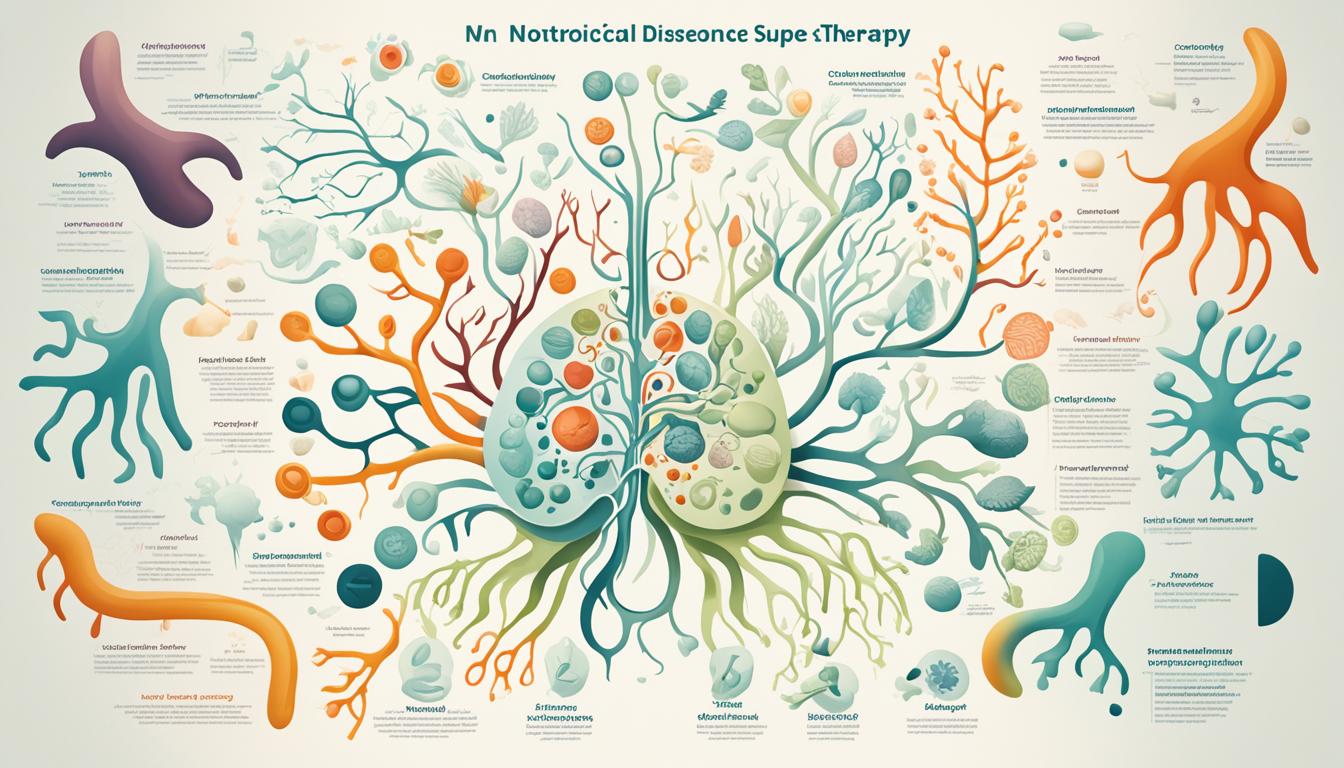Nontropical sprue, also called celiac disease, is an autoimmune disorder. It happens when the body reacts badly after consuming gluten. Gluten is a protein found in wheat, barley, and other grains.
This autoimmune reaction damages the villi in the small intestine. Villi help the body absorb nutrients. So, when they get damaged, the body can’t absorb nutrients well. This causes a variety of symptoms from stomach problems to weak bones.
Many people with celiac disease don’t know they have it. About 80% of them are not diagnosed. If it’s not treated, celiac disease can lead to more serious health problems, like a higher risk of certain cancers.
Key Takeaways:
- Nontropical sprue, or celiac disease, is an autoimmune disorder caused by gluten consumption.
- Gluten-sensitive enteropathy can lead to a range of symptoms, including gastrointestinal issues and weakened bones.
- The disease is often underdiagnosed, with a high percentage of individuals remaining undiagnosed.
- Untreated celiac disease can increase the risk of certain types of cancer.
- Stem cell therapy shows promise in promoting tissue regeneration and may offer hope for nontropical sprue patients.
Symptoms and Diagnosis of Nontropical Sprue
Celiac disease, or nontropical sprue, shows many symptoms. Common signs include bloating, constipation, diarrhea, and pale, bad-smelling stool. Less commonly, some with the disease don’t have these issues.
Celiac disease can also bring on malnutrition. Weight loss, feeling tired, and being short-tempered might be noticed. Not getting enough nutrients can really hurt your health.
Women might face hormonal issues with celiac disease. It can mess up periods or cause early menopause. The risk of miscarriage might go up too, highlighting why early diagnosis is key.
Kids might show different signs. They could have trouble growing, bloat, and have stomach problems. A rash called dermatitis herpetiformis could also show up. It looks like itchy blisters on the skin.
Diagnosing celiac disease includes checking your history and a physical test. A blood check can find disease-related antibodies. If this test is positive, a small bowel biopsy might be done. This test looks closely at the intestine to see if there’s damage from the disease.
If you have any of these symptoms, especially with a family history of autoimmune diseases, see a doctor. Discuss your worries with them. It’s the best way to catch and treat the disease early.
Taking Control of Your Health
If you think you have celiac disease, talk to a medical expert. They can give you the right tests and advice. Catching it early can make a big difference in how well you manage the condition.
Next, we’ll dive into how stem cell therapy might change the game for nontropical sprue. Stay tuned!
| Symptoms of Celiac Disease | Diagnostic Methods |
|---|---|
| Bloating | Medical history |
| Constipation | Physical examination |
| Diarrhea | Blood tests for celiac antibodies |
| Pale, foul-smelling stool | Small bowel biopsy |
| Weight loss | |
| Fatigue | |
| Irritability | |
| Irregular periods | |
| Early menopause | |
| Miscarriage | |
| Failure to thrive | |
| Dermatitis herpetiformis (skin rash) |
Stem Cell Therapy for Nontropical Sprue
Stem cell therapy is showing exciting results for nontropical sprue patients. It brings hope to their recovery journey. Regenerative medicine is used to help repair the small intestine.
Mesenchymal stem cells are key. They are in different parts of the body. These cells can turn into various types of cells, aiding in tissue repair.
Intestinal stem cells are also being looked into for their regenerative abilities. They are in the gut’s lining. Studying these cells is seen as a promising area in regenerative medicine.

